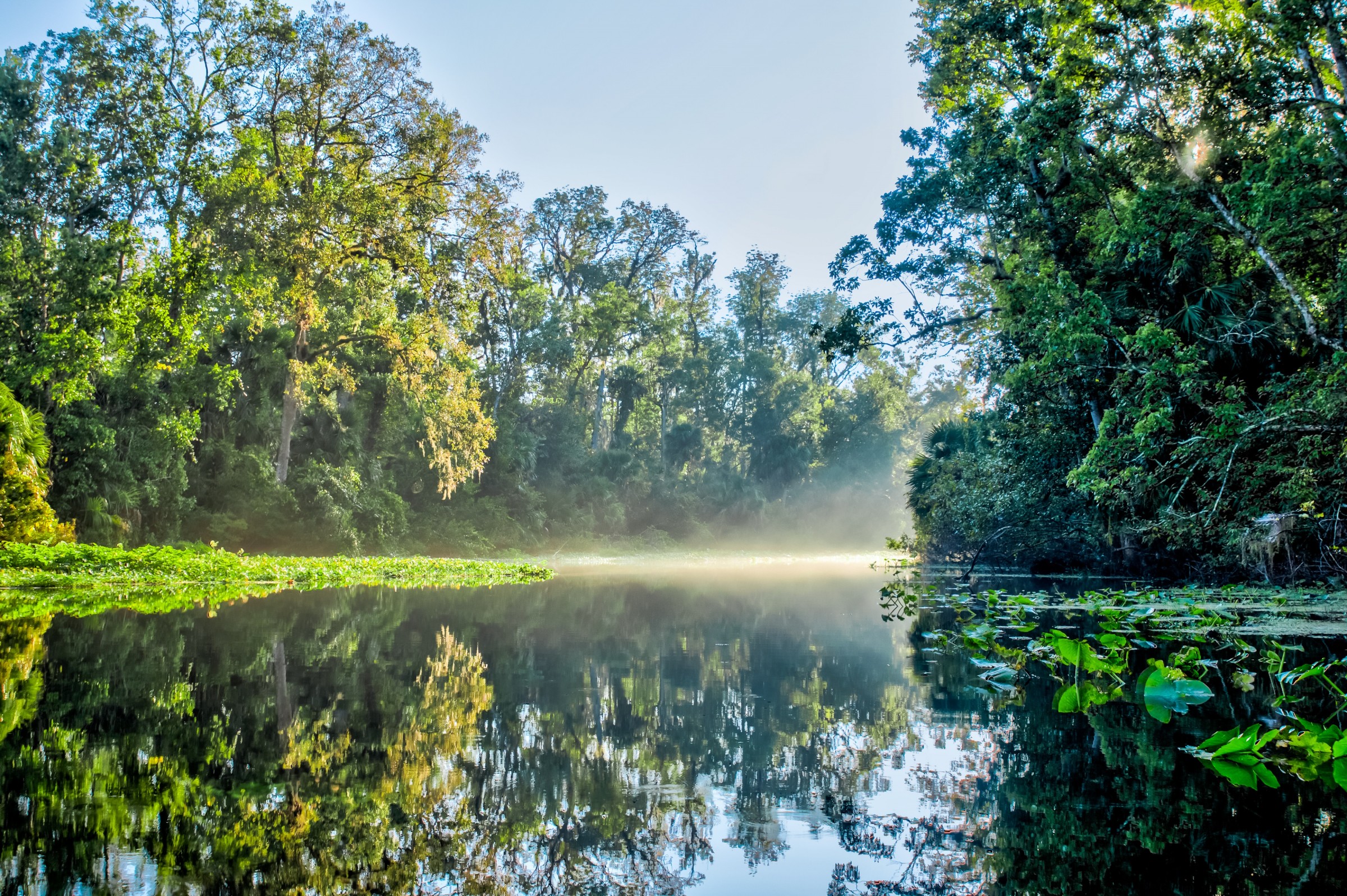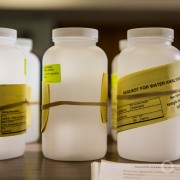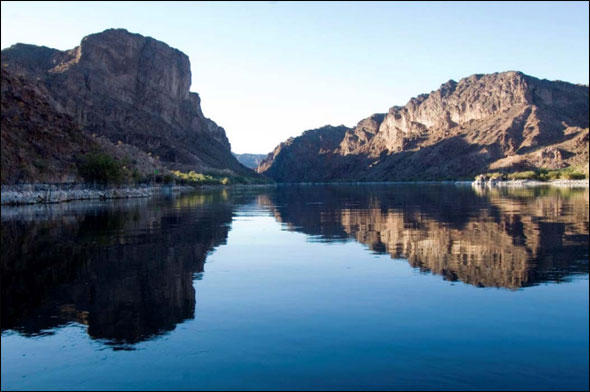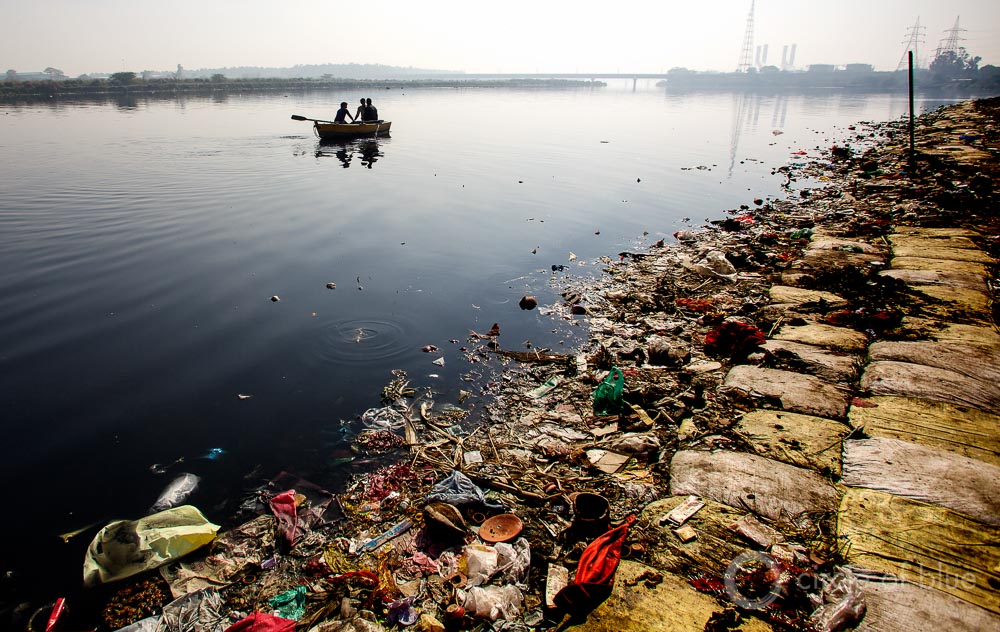2020 Election: Water Decisions Pepper State and Local Ballots
The legal rights for rivers and municipal financing of sewer improvements are some of the issues being presented to voters.

The Wekiva River, in central Florida. Voters in Orange County will decide whether to grant the river and other waterways in the county legal rights. Photo courtesy of Flickr/Creative Commons user Rain0975
By Brett Walton, Circle of Blue
The main event on November 3 is the presidential contest, Trump v. Biden.
The outcome of that race will influence the direction of national water policy.
Down the ballot there is action of a different sort. A hodgepodge of constitutional amendments and ballot measures seek to move water policy at the state and local level.
Voters in a county in central Florida, for instance, will determine whether the county’s rivers have legal rights.
What other questions are on the ballot?
State Decisions
New York
The state was expected to vote on a $3 billion bond measure that would have funded projects related to climate resilience, environmental restoration, water pollution prevention, and clean energy.
Would have.
Gov. Andrew Cuomo instead withdrew the measure from the ballot in July, citing financial uncertainty due to the pandemic.
“The financial situation is unstable,” Cuomo said. “I don’t think it would be financially prudent to do it at this time.”
The measure could reappear on the ballot next year, but the Legislature must first reauthorize it.
Utah
Constitutional amendment D relates to municipal water supply. The amendment allows a city to determine the boundaries of its service area, even if it extends outside the city limits.
The aim is to fix a potential loophole. Existing state law prioritizes water supply to city residents. Residents living beyond the city boundary but receiving water from the city could potentially see their water service cut with little notice.
The amendment is a rare spot of bipartisan agreement. It received unanimous support in Utah’s House and Senate.
Wyoming
Voters in this state also have the option of amending their constitution’s stance on a water issue.
Constitutional amendment A asks whether to remove a limit on the amount of debt a municipality can take on for a sewer project. The Legislature would then be allowed to set a limit.
Currently, a municipality cannot raise debt for sewer projects above 4 percent of the assessed value of taxable property in town.
The Legislature endorsed the amendment earlier this year by an overwhelming margin, but it needs voter approval, too.
Local Initiatives
Orange County, Florida
Do the Wekiva and Econlockhatchee rivers have a right to exist? Do they have a right to flow and be free from pollution?
Those questions are encompassed in a charter amendment question that voters in Orange County, Florida will decide. The charter is akin to a county constitution.
The amendment would define the two rivers and all other waterways in the county as having those rights. It empowers county agencies and residents to file lawsuits to protect the rivers from pollution.
“I think it’s necessary because there is an imbalance between the rights of commerce and industry and the rights of rivers and waterways,” Chuck O’Neal told Circle of Blue. “That has produced a situation where a majority of waterways in Florida are impaired, which is a fancy word for polluted.”
O’Neal is the chair of Speak Up Wekiva, which proposed the amendment, and chair of the Right to Clean Water political committee, which is campaigning on its behalf. A charter review commission approved the final language for the ballot.
Orange County is not the first jurisdiction to put the legal rights of waterways on the ballot. Last year, voters in Toledo approved in its municipal charter a “bill of rights” for Lake Erie. The lake has seen an increase in harmful algal blooms due to warming waters, wetter conditions, and an influx of nutrients.
A federal judge, however, nullified the Toledo vote, ruling that the bill of rights for the lake was “unconstitutionally vague.”
The Community Environmental Legal Defense Fund, which helped draft the Lake Erie amendment, has also assisted in drafting the Orange County measure.
Even if it passes, the Orange County amendment may face similar challenges. Gov. Ron DeSantis signed a bill in June with a provision that prohibits local governments from recognizing the legal rights of the natural environment. Green groups have challenged that law in court.
Colorado River Water Conservancy District
Spanning 15 counties across Colorado’s Western Slope, the district is a public agency tasked with managing the state’s share of the Colorado River.
The district’s operations are partly funded by property taxes levied in those counties. With ballot question 7A, the district is seeking a tax increase in 2021 to raise more than $4.9 million a year.
According to the district’s spending plan, the funds would be used for a wide range of projects, including agriculture, infrastructure, ecosystem protection, water quality, and conservation/efficiency. The measure does not allow the district to use the funds to pay farmers not to irrigate their crops, a water-saving practice known as demand management.
The big-tent approach has drawn broad support from the recreation industry, farmers, environmental groups, and county commissioners, according to Aspen Journalism. But some groups worry that the spending plan is vague and that money will be funneled to dam projects or those that increase water use in the drying basin.
Atlanta
The outcome for this item was decided in June.
Seventy-two percent of Atlanta voters approved another extension of a 1-percent city sales tax that is dedicated to water and sewer projects.
First approved in 2004, this is the fourth time that voters have extended the sales tax. The city says the tax has raised about $1.8 billion since its inception and has forestalled the need to increase water and sewer rates in the last eight years.
Brett writes about agriculture, energy, infrastructure, and the politics and economics of water in the United States. He also writes the Federal Water Tap, Circle of Blue’s weekly digest of U.S. government water news. He is the winner of two Society of Environmental Journalists reporting awards, one of the top honors in American environmental journalism: first place for explanatory reporting for a series on septic system pollution in the United States(2016) and third place for beat reporting in a small market (2014). He received the Sierra Club’s Distinguished Service Award in 2018. Brett lives in Seattle, where he hikes the mountains and bakes pies. Contact Brett Walton










Leave a Reply
Want to join the discussion?Feel free to contribute!